
Robert Nozick was an American philosopher. He held the Joseph Pellegrino University Professorship at Harvard University, and was president of the American Philosophical Association. He is best known for his book Anarchy, State, and Utopia (1974), a libertarian answer to John Rawls' A Theory of Justice (1971), in which Nozick proposes his minimal state as the only justifiable form of government. His later work, Philosophical Explanations (1981), advanced notable epistemological claims, namely his counterfactual theory of knowledge. It won the Phi Beta Kappa Society's Ralph Waldo Emerson Award the following year.

Jan Narveson is professor of philosophy emeritus at the University of Waterloo, in Waterloo, Ontario, Canada. An anarcho-capitalist and contractarian, Narveson's ideology is deeply influenced by the thought of Robert Nozick and David Gauthier.

Hans-Hermann Hoppe is a German-American academic associated with Austrian School economics, anarcho-capitalism, right-wing libertarianism, and opposition to democracy. He is professor emeritus of economics at the University of Nevada, Las Vegas (UNLV), senior fellow of the Mises Institute think tank, and the founder and president of the Property and Freedom Society.

Sir Bernard Arthur Owen Williams, FBA was an English moral philosopher. His publications include Problems of the Self (1973), Ethics and the Limits of Philosophy (1985), Shame and Necessity (1993), and Truth and Truthfulness (2002). He was knighted in 1999.
Loren E. Lomasky is an American philosopher, currently the Cory Professor of Political Philosophy, Policy and Law at the University of Virginia.
David Wiggins is an English moral philosopher, metaphysician, and philosophical logician working especially on identity and issues in meta-ethics.
David Schmidtz is a Canadian-American philosopher. He is Presidential Chair of Moral Science at West Virginia University's Chambers College of Business and Economics. He is also editor-in-chief of the journal Social Philosophy & Policy. Previously, he was Kendrick Professor of Philosophy and Eller Chair of Service-Dominant Logic at the University of Arizona. While at Arizona, he founded and served as inaugural head of the Department of Political Economy and Moral Science.
In philosophy, moral responsibility is the status of morally deserving praise, blame, reward, or punishment for an act or omission in accordance with one's moral obligations. Deciding what counts as "morally obligatory" is a principal concern of ethics.
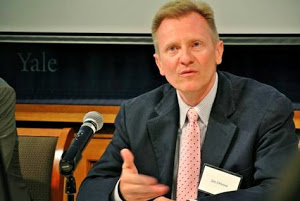
James R. Otteson is an American philosopher and political economist. He is the John T. Ryan Jr. Professor of Business Ethics at the University of Notre Dame. Formerly, he was the Thomas W. Smith Presidential Chair in Business Ethics, Professor of Economics, and executive director of the Eudaimonia Institute at Wake Forest University. He is also a Senior Scholar at The Fund for American Studies in Washington, D.C., a Research Professor in the Center for the Philosophy of Freedom and in the Philosophy Department at the University of Arizona, a Visitor of Ralston College, a Research Fellow for the Independent Institute in California, a director of Ethics and Economics Education of New England, and a Senior Scholar at the Fraser Institute. He has taught previously at Yeshiva University, New York University, Georgetown University, and the University of Alabama.

Philip Noel Pettit is an Irish philosopher and political theorist. He is the Laurance S. Rockefeller University Professor of Politics and Human Values at Princeton University and also Distinguished University Professor of Philosophy at the Australian National University.

Geoffrey Sayre-McCord is an American philosopher who works in moral theory, ethics, meta-ethics, the history of ethics and epistemology. He teaches at the University of North Carolina, Chapel Hill. He is also the director of the Philosophy, Politics and Economics Society.
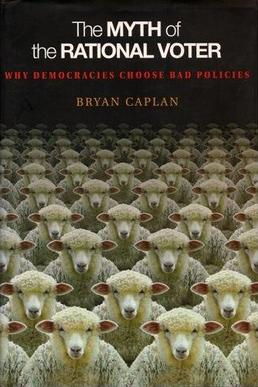
The Myth of the Rational Voter: Why Democracies Choose Bad Policies is a 2007 book by the economist Bryan Caplan, in which the author challenges the idea that voters are reasonable people whom society can trust to make laws. Rather, Caplan contends that voters are irrational in the political sphere and have systematically biased ideas concerning economics.
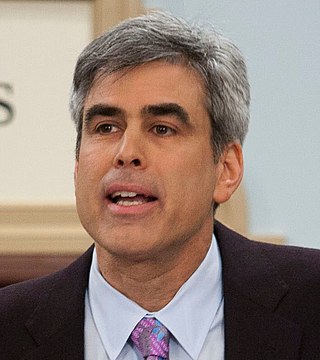
Jonathan David Haidt is an American social psychologist and author. He is the Thomas Cooley Professor of Ethical Leadership at the New York University Stern School of Business. His main areas of study are the psychology of morality and moral emotions.

Herbert Gintis was an American economist, behavioral scientist, and educator known for his theoretical contributions to sociobiology, especially altruism, cooperation, epistemic game theory, gene-culture coevolution, efficiency wages, strong reciprocity, and human capital theory. Throughout his career, he worked extensively with economist Samuel Bowles. Their landmark book, Schooling in Capitalist America, had multiple editions in five languages since it was first published in 1976. Their book, A Cooperative Species: Human Reciprocity and its Evolution was published by Princeton University Press in 2011.

Gary William Chartier is a legal scholar, philosopher, political theorist, and theologian. His work addresses anarchism and ethics. Chartier is a professor and serves as associate dean of La Sierra University's business school.
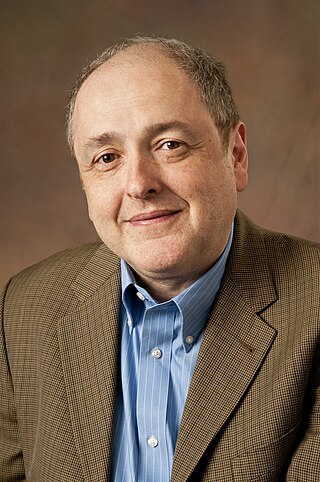
Brian Leiter is an American philosopher and legal scholar who is Karl N. Llewellyn Professor of Jurisprudence at the University of Chicago Law School and founder and Director of Chicago's Center for Law, Philosophy & Human Values. A review in Notre Dame Philosophical Reviews described Leiter as "one of the most influential legal philosophers of our time", while a review in The Journal of Nietzsche Studies described Leiter's book Nietzsche on Morality (2002) as "arguably the most important book on Nietzsche's philosophy in the past twenty years."
Political ethics is the practice of making moral judgments about political action and political agents. It covers two areas: the ethics of process, which covers public officials and their methods, and the ethics of policy, which concerns judgments surrounding policies and laws.
Gerald Allan Cohen was a Canadian political philosopher who held the positions of Quain Professor of Jurisprudence, University College London and Chichele Professor of Social and Political Theory, All Souls College, Oxford. He was known for his work on Marxism, and later, egalitarianism and distributive justice in normative political philosophy.
Neoclassical liberalism is a tradition of the liberal thought that, with the premises of John Locke's classical liberalism applied to industrialized societies, stands in opposition to the welfare state and social liberalism. In the United States, the Arizona School of liberalism, also referred to as "bleeding-heart libertarianism", adopted the term neoclassical liberal to advance certain ideas of Chicago School economist Milton Friedman within the American libertarian movement, including the school voucher system and the negative income tax.
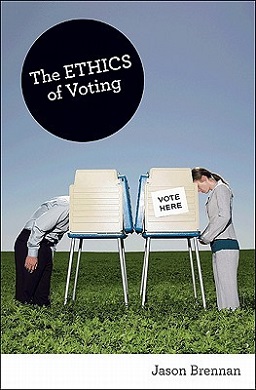
The Ethics of Voting by Jason Brennan is a book which outlines a contrasting argument to the idea that it is the civic duty of individuals within a democracy to vote. The core tenet upon which his argument resides is that the individuals who do not know what they are voting for should not feel the moral obligation to vote on issues about which they are uninformed, and that democracies would benefit as a whole from their abstaining from the polls.














